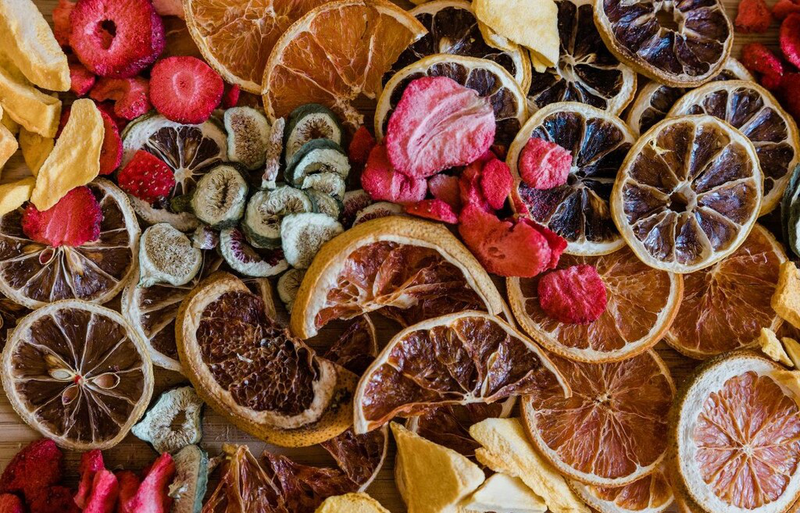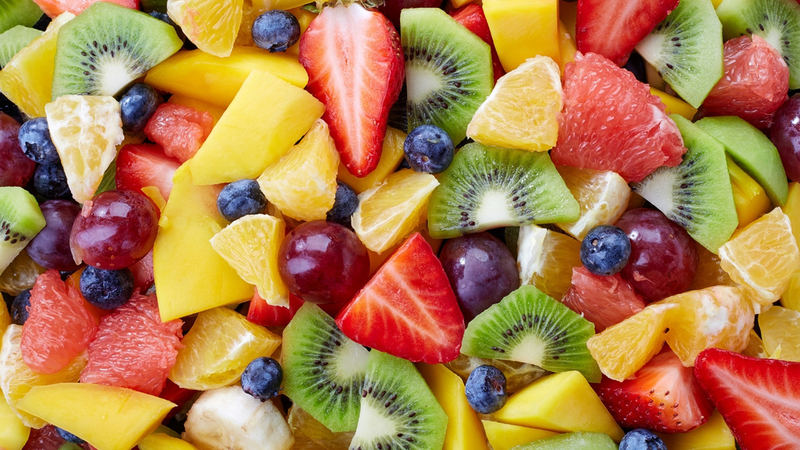Nutrition plays an important role in the treatment of cancer, helping patients increase their resistance and reduce the side effects of drugs. However, not all fruits are good for cancer patients. So what fruits should cancer patients avoid and what fruits should they eat?
What fruits should cancer patients avoid and what fruits should they eat is certainly always a topic of interest to many readers. Understanding that, in the health article below, we will provide readers with the most basic information to help readers better understand this topic.
Should cancer patients eat fruit?
Should cancer patients eat fruit? The answer is yes. According to experts, choosing the right fruit for cancer patients may vary depending on the type of cancer. For example, patients with gastrointestinal cancer may need to limit sour fruits because these fruits can cause irritation. However, for other common cancers such as prostate cancer or lung cancer, there is no scientific evidence that fruit should be avoided or that the body’s ability to absorb nutrients from them is reduced.
One of the important nutritional principles for cancer patients is to supplement fiber from vegetables and fruits. However, if you do not choose the right type that suits your physical condition and health status, fruit can have the opposite effect or affect the effectiveness of treatment.
Nutrition experts recommend not to increase fruit intake while ignoring other food groups. On the contrary, maintaining a reasonable amount of fruit will help the body balance nutrition, improve health and support the response to the treatment regimen.

Should cancer patients eat fruit?
What fruits should cancer patients avoid?
Choosing the right foods plays an important role in the treatment of cancer. Some fruits can adversely affect the patient’s health and aggravate the condition. So what fruits should cancer patients avoid?
Here are the fruits that cancer patients should avoid or limit:
Rotten, rotten fruits
Patients should not consume rotten and damaged fruits because these fruits may contain mold and harmful bacteria, especially Mycotoxin – a toxin that can damage the digestive system, cause infection or even poisoning if eaten in large quantities. For people with weak immune systems such as cancer patients, consuming rotten fruits can reduce the ability to respond to treatment.
Chemically soaked and forced-ripened fruits
Fruits that are soaked or chemically incubated to ripen quickly can contain many potential risks to the patient’s health, including:
- Toxic chemicals: Some chemicals used to ripen fruit can affect the liver, kidneys and nervous system, causing negative impacts on health.
- Risk of genetic modification: Exposure to chemicals in fruit can increase the risk of genetic modification, accelerate the metastasis of cancer cells or disease recurrence.
- Digestive effects: Chemicals in fruit can irritate the stomach lining, leading to digestive disorders such as bloating, diarrhea and affecting the absorption of nutrients.
Dried fruit is not of guaranteed quality
Dried fruit often goes through processing, marinating with sugar and preservatives. This reduces nutritional value and can be harmful to health. Some products also contain colorants, preservatives or bacteria, increasing the risk of infection. Therefore, cancer patients should limit their consumption of dried fruits, especially those of unknown origin or with too many additives.

Dried fruit is the answer to the question of what fruits to avoid with cancer.
Choosing fruits according to the disease condition
Not all cancer patients need to avoid the same type of fruit. The choice of fruit should be based on the type of cancer, the stage of the disease and the overall health condition. For example:
- People with nasopharyngeal cancer or mouth lesions should avoid sour fruits such as oranges and lemons because they can irritate the mucous membranes, increasing inflammation and ulcers.
- People with stomach cancer should limit fruits that are too sour or rich in acid because they can increase gastric secretion, causing stomach pain.
Which fruits should cancer patients eat
In addition to the topic of what fruits cancer patients should avoid, what fruits should cancer patients eat is also of interest to many readers. In addition to avoiding unsuitable fruits, cancer patients should also supplement fruits that are beneficial to health. Below are recommended fruit groups for cancer patients, readers can refer to:
Fruits rich in fiber
Fiber plays an important role in balancing nutrition, supporting digestion and helping the body maintain stable health. Cancer patients should supplement fruits rich in fiber such as apples, pears, bananas, papaya and grapefruit… Consuming enough fiber can help reduce the risk of physical weakness, support the digestive system and improve overall health.
Fruits rich in vitamins and minerals
Fruits rich in vitamins and minerals bring many benefits to cancer patients, including strengthening the immune system, supporting health recovery and maintaining stable physical condition during treatment, reducing the negative effects of chemotherapy and radiotherapy on the immune system and antioxidants, protecting cells from damage caused by free radicals.
Some fruits rich in vitamins and minerals that are good for cancer patients include guava, kiwi, strawberries, oranges (for people without mouth or stomach ulcers)…

Cancer patients should eat fruits rich in vitamins and minerals.
Fruits rich in antioxidants
Antioxidants found in many fruits help reduce inflammation, prevent the growth and metastasis of cancer cells. Fruits rich in antioxidants that cancer patients should supplement include blueberries, pomegranates, black grapes, raspberries, etc. These fruits not only help protect healthy tissues but also help slow the progression of the disease.
Fruits low in fructose
Cancer patients should limit the consumption of fruits high in fructose, such as ripe mangoes, longans, lychees, etc. because sugar can increase the risk of insulin resistance, affect metabolism, and worsen the disease. Instead, prioritize fruits with low sugar content such as cucumbers, avocados, grapefruits, and mulberries, etc.
Notes when eating fruit for cancer patients
Choosing the right type of fruit plays an important role in the nutritional regimen of cancer patients. So when eating fruit, what should cancer patients pay attention to?
- Choose quality fruit sources: Prioritize fresh fruit with clear origins. If possible, choose organic fruit with little or no chemicals or pesticides to ensure health safety.
- Wash before eating: Fruits need to be washed under running water, at least three times. For fruits that can be eaten with the skin (such as apples, pears), soak them in diluted salt water or use a soft brush to gently scrub to remove dirt and bacteria. Peel fruits that are at risk of containing pesticide residues.
- Eat fresh fruit, limit processing: You should eat fresh fruit or drink pure juice to keep the nutritional content intact. Along with that, you need to limit the consumption of dried fruit, canned fruit, industrial juice because they contain a lot of sugar, preservatives and can reduce nutritional value.
- Eat fruit at the right time: You should eat fruit as a snack or about 30 – 60 minutes after the main meal to support better digestion. You should not eat fruit right before a main meal, especially sour fruit, as this can affect the stomach.
- Consult a doctor: Each patient has a different physical condition and disease status, so you need to consult a doctor to know which fruits to eat and which to avoid depending on the stage of treatment. Adjusting your diet appropriately will help optimize treatment effectiveness and minimize unwanted side effects.

You need to wash the fruit before using it.
Above is all the basic information surrounding the topic of what fruits to avoid and what fruits to eat with cancer that we have compiled to send to readers. Hopefully, our article today will help you gain more useful knowledge. Thank you for always following and accompanying us.





